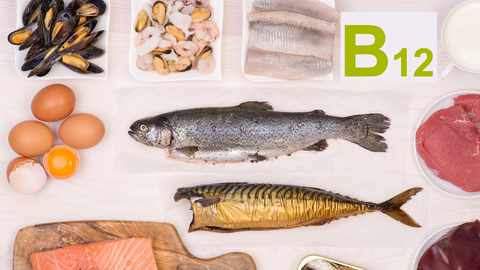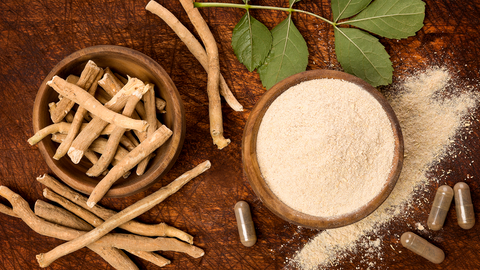Education

Choosing the right choline supplement can feel confusing. Phosphatidylcholine, Alpha GPC, and Citicoline each offer unique benefits for the brain, but no single form can do it all. That is why Procera Vital Choline® combines all three, and also includes Pantothenic Acid (as D-calcium pantothenate) to support energy metabolism, along with Taurine to help boost brain energy. Together, these ingredients create a complete, research-backed formula designed to provide well-rounded support you will not find in typical single-ingredient supplements.

More than 90% of Americans are missing a nutrient essential for brain, liver, and nervous system health, and most don’t even know it. Choline plays a vital role in memory, focus, energy, and long-term resilience, yet it remains one of the most overlooked gaps in modern nutrition. This article explores why deficiency is so widespread, who is most at risk, and how you can protect your health with smarter choices and targeted support.

When it comes to brain health, sometimes the most powerful solutions are the simplest. B-vitamins don’t just “boost energy”—they help fuel neurotransmitter production, support circulation, and maintain the metabolic processes that keep your brain clear and resilient. In this article, we explore how B1, B2, B3, B6, Folate, and B12 work together as a “blueprint” for cognitive function, and how Procera® Advanced Brain builds on this foundation with additional clinically studied ingredients.

Struggling with sleep can be a maddening experience. It often feels like a cycle that feeds on itself. If you're in that camp, you've probably already tried some different approaches to regain your rest. But if you're still looking for inspiration, fear not: there are many, many things that can help your sleep if you're willing to experiment. We have scoured through the internet to find you 5 completely Out-Of-The-Box treatments for insomnia. Scroll down to get some new ideas to help you find a perfect night's rest.

These 5 Foods Will Get You Up To Speed.
Do you feel worn out? Are you forgetting stuff that you usually remember? Do you get worked up more easily than usual or find yourself getting sad over little things? If so, it’s possible that you’re not getting enough Vitamin B-12. You might have noticed that B-12 shots are all the rage right now (They’re even giving them in the mall!). There’s a good reason for that. B Vitamins are often called the ‘energy vitamins’ because they work like keys to unlock your body’s energy reserve. Let’s look at what Vitamin B-12 specifically can do for you and why you need it.

If you think energy drinks are harmless, think again. According to Dr. John Higgins from the University of Texas Medical School, experts are beginning to weigh in on the safety of energy drinks. The results aren't good. In an interview with CNN, he made the following statement:

Does getting a good night's sleep seem more and more elusive? Do you find yourself either not getting to sleep or waking up feeling unrefreshed? This time of year many people struggle with sleep, especially with the change in daylight savings. But with all of the natural sleep supplements available, it doesn't have to be so hard. If you're ready to do something about it, you're in luck! There are many natural sleep supplements that can help you regain that night of perfect slumber. Here is a list of natural sleep aids that can help you not only get to sleep but to regain that precious deep sleep you've been wanting.

From our earliest years, we are all taught the importance of taking care of our bodies. However, very little attention is paid to our brain health as an area of focus.
As our lifespans continue to increase, our cognitive wellness becomes an even more important issue. In our later years especially, our brain health will become a critical factor in our quality of life. So with that in mind, what determines how to keep your brain healthy?

Life can feel nonstop—between work demands, family responsibilities, and the ever-growing to-do list, it’s easy to feel mentally drained. With so much going on, staying focused and keeping your energy up can be a real challenge. And while many of us reach for coffee or energy drinks to power through, is there a healthier, more effective way to boost our mental clarity and focus?

With all of the holiday stress, many breathe a sigh of relief when they can return to their 'normal' routines. However, for an increasing number of people, the stress issue doesn’t end with the month of December.
According to the American Psychological Association, chronic stress is reaching the point of a public health crisis in the US. According to a recent study, the holiday season can be a time of unbelievable highs and also tremendous lows. The New York Post reported that many Americans feel that this time of year can be both wonderful and at the same time draining and full of stressors. Termed “Festive Stress,” 31% of US citizens refer to the season as ‘frantic,’ citing difficulty with gift shopping, family reunions, and the pressure to create ‘the perfect Christmas.’

If you’ve ever been to the doctor to get to the bottom of a fatigue issue, you know how frustrating the process can be. In fact, if you’ve complained of feeling constantly run down, then the likelihood is you probably didn’t get a straight answer.
There’s a good reason for this. Fatigue is such a general symptom that it can be very difficult and sometimes impossible to place. However, enduring, unexplainable fatigue coupled with difficulty sleeping, brain fog, memory issues, and poor digestion can point to a specific problem--one that remains officially off the books...

In a world of health fads and crazes, it’s easy to feel like science is changing every day. Some things that were healthy to our parents’ generation might now be considered dangerous and ill-advised. But in reality, most building blocks of good health never really change. It may not be revolutionary or sensational, but one of the best things you can do for yourself is take a multivitamin. Multivitamins provide a basic foundation of minerals and nutrients, and taking them can have a number of positive health benefits.



